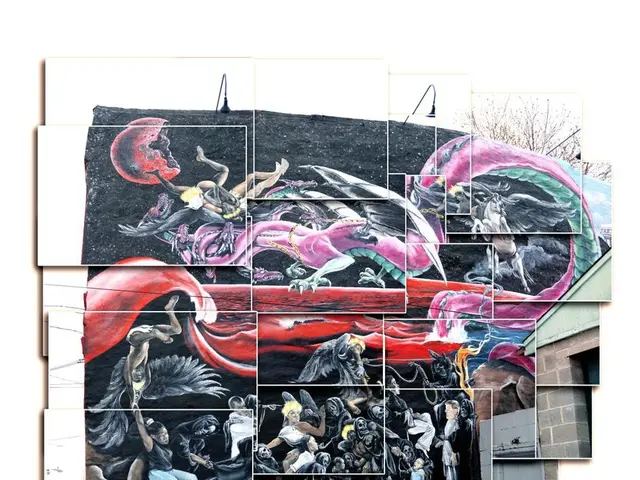Advancements in Casino Safety: The Impact of Artificial Intelligence on Gaming Strategies
AI Transforms Casino Security: Valley Forge Heist Foiled
In the world of modern casinos, the relentless march of technology has ensured that safety and security are always a step ahead of potential threats. Last Tuesday night, two masked gunmen attempted a casino heist at Valley Forge Casino, but their plan was quickly thwarted by the casino's AI-driven security systems.
The current role of AI in casino security centers on real-time monitoring and detection of fraudulent behavior, money laundering, and other suspicious activities. Casinos use AI and machine learning to continuously analyze player behavior and transactions, flagging high-risk players and patterns faster than traditional systems can. This includes verifying identities to prevent the use of fraudulent documents and integrating Anti-Money Laundering (AML) compliance with Know Your Customer (KYC) processes for a comprehensive security approach.
The gunmen targeted the FanDuel sports-book section of the casino, but their efforts were quickly nullified. The casino's layout is equipped with exhaustive surveillance and security protocols, which includes the use of AI and machine learning. These systems were able to detect the unusual activity and alert security personnel in real-time, allowing them to apprehend the gunmen before any significant damage could be done.
The future of security is expected to be heavily influenced by AI and machine learning. AI and machine learning are crucial in the advancement of security measures, with capabilities including facial recognition algorithms and predictive analysis. Future implications of AI in casino security involve increasing innovation, such as the adoption of AI agents and multi-agent systems, which can autonomously collaborate to manage complex security tasks such as vulnerability detection and incident response. However, these advanced AI systems also introduce new vulnerabilities that security teams must proactively address by designing robust safeguards and data protections from the ground up.
The integration of AI and machine learning into security apparatus is not just a novelty, but a necessity. AI and machine learning are playing a burgeoning role in bridging the gap for security professionals, offering tools that can process vast amounts of data quickly and accurately, and respond to threats in real-time. The evolution of car security and that of casinos can be compared, with both transitioning from simple measures to sophisticated AI-driven systems.
Quantum encryption offers a level of data security that is virtually unbreakable, and quantum computing could be introduced into the security sector as an impervious shield against physical and cyber threats. The intersection of theoretical math, AI, and real-world application is expected to make incidents like the Valley Forge Casino heist obsolete. The case of the Valley Forge Casino heist serves as a reminder of the gap between ambition and reality for criminals, and the importance of staying ahead of the curve in the ever-evolving world of security technology.
| Aspect | Current Use of AI in Casino Security | Future Implications | |-----------------------|--------------------------------------------------------------------------|-------------------------------------------------------------| | Fraud & AML Detection | Real-time monitoring, pattern recognition, dynamic risk scoring | More autonomous AI agents managing complex security tasks | | Cybersecurity | Intrusion detection, 2FA, encryption, behavioral analysis | Increased AI-driven threat detection and incident response | | Risks & Challenges | Identifying fraudulent users, stopping money laundering | New attack vectors from advanced AI (data poisoning, etc.) | | Industry Response | Integration of KYC and transaction monitoring, cross-border cooperation | Developing AI-secure-by-design systems and AI trust models |
Thus, AI today is central to detecting and preventing fraud and cyber threats in casinos, while the future will require balancing the benefits of autonomous AI security tools with managing their new risks and potential exploits.
- The application of AI and machine learning in current casino security systems includes real-time monitoring and detection of fraudulent activities and money laundering, which enables casinos to rapidly identify high-risk players and patterns.
- In the forthcoming future, AI and machine learning are anticipated to be instrumental in enhancing security measures within casinos, with potential advancements such as the development of AI agents and multi-agent systems for managing complex security tasks.








